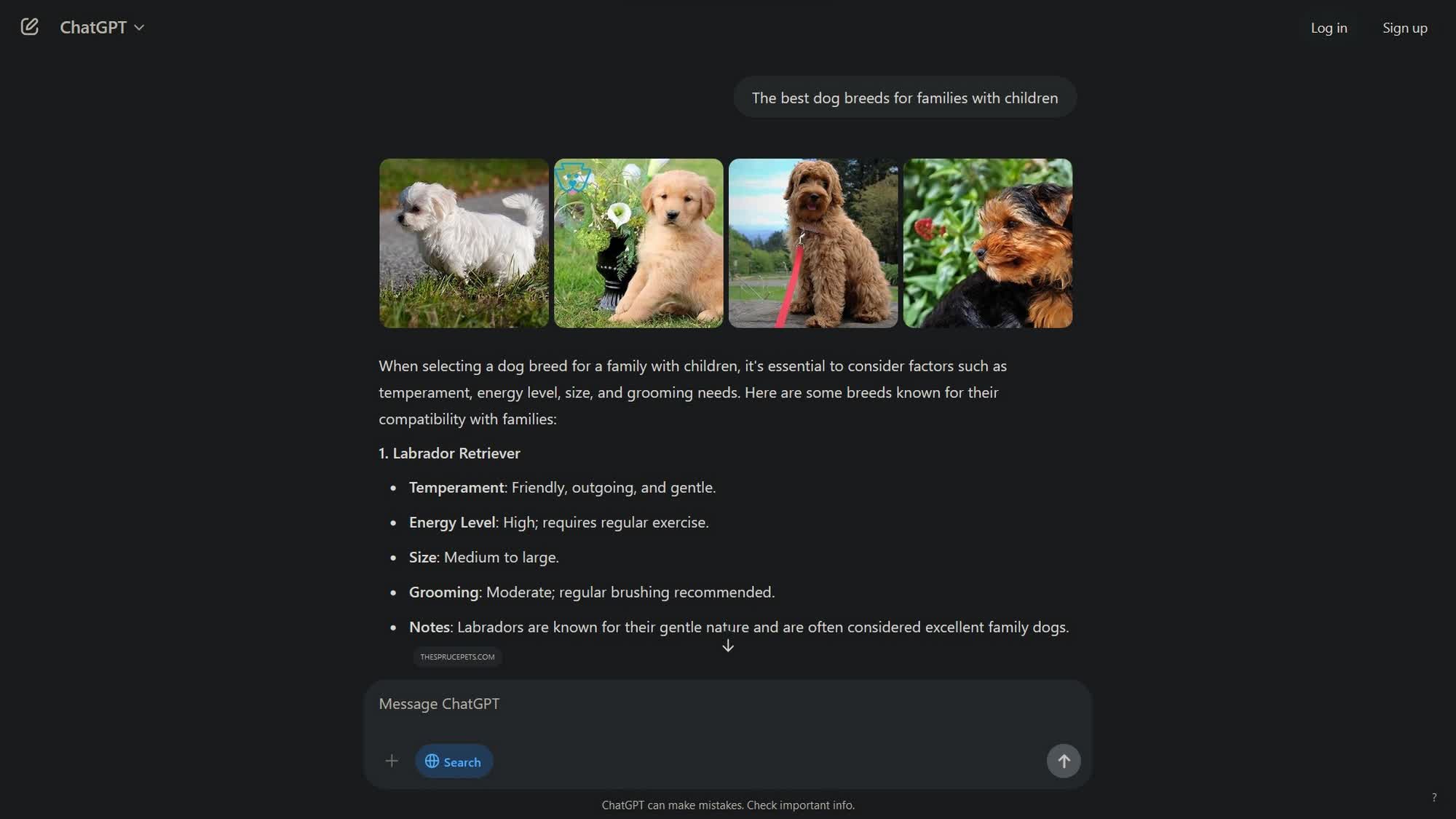What just happened? OpenAI has made ChatGPT’s web search tool accessible to everyone without needing to log in or sign up first. The feature, which is integrated into the AI chatbot and available on chatgpt.com, was launched last October before expanding to more users later in the year.
To access the web search feature, users simply need to navigate to the website, click on the search button, and enter their query. ChatGPT will then scrape the web for relevant information and respond in a conversational manner, like an AI chatbot. Like any other traditional search engine, ChatGPT’s replies include photos and links to the websites from which it sourced its information.
The feature is also available on the Android app but has not yet rolled out to iOS at the time of writing. At this stage, there’s no official clarification from OpenAI about when it will be available on Apple’s App Store, but it’s likely to happen sooner rather than later.
ChatGPT’s web search feature was initially only available to paying ChatGPT subscribers, but in December 2024, OpenAI rolled it out to all users with a free ChatGPT account. However, many industry observers believed that OpenAI would need to make the feature available to everybody – regardless of whether they have a ChatGPT account or not – for it to have any chance of disrupting the web search market.
The Guardian reported in December that OpenAI’s web search feature is vulnerable to prompt injection techniques. As per the report, if a website uses hidden text to send incorrect information using HTML or CSS, the AI tool picks it up and generates biased output. The flaw could be exploited to propagate misinformation, including fake reviews of products on e-commerce sites.
Additionally, the report claimed that prompt injections in hidden text could also be used to deliver malicious code from websites. The technique could be used by unscrupulous website publishers to generate favorable reviews of their products on AI search tools and deceive users in various other ways. It is unclear whether OpenAI has fixed the issue.
Vulnerabilities notwithstanding, the move to offer AI-based web search to all users could pose Google its biggest challenge since its inception nearly three decades ago. Google is currently the leading search engine in the world, accounting for nearly 90 percent of all web searches between January 2024 and January 2025. However, OpenAI’s latest move could put pressure on Google as ChatGPT search becomes widely available.
Source link
